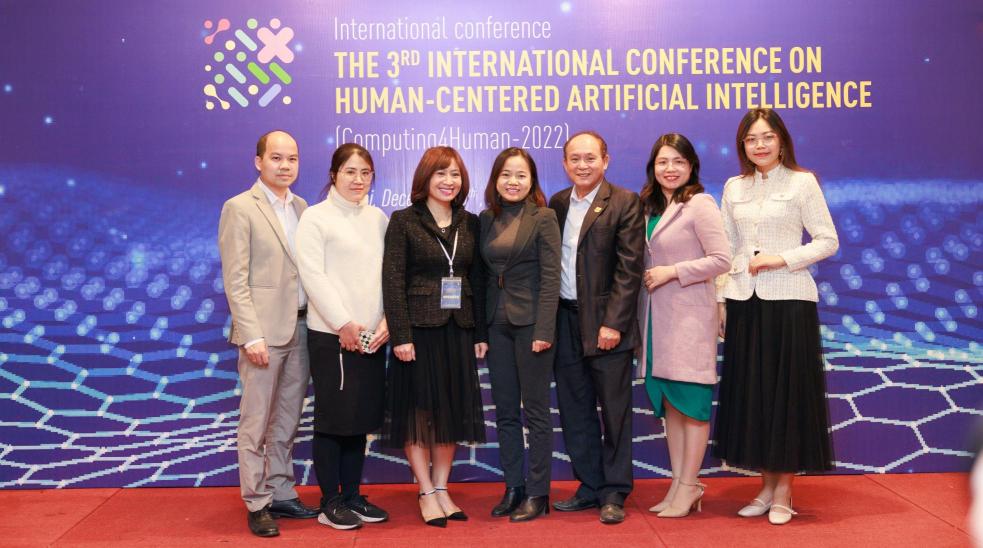National governance in the context of digital transformation

In essence, national governance is the process of making decisions and organizing the implementation of decisions to manage the country, solving political, economic and social problems in a country. The United Nations Development Program (UNDP) defines national governance as “the exercise of political, administrative and economic power to manage national affairs at all levels. It includes the mechanisms, processes and institutions through which citizens and groups express their concerns and exercise their legitimate rights and obligations, as well as their differences” (1).
In the context of digital transformation, with the application of digital technology, information processing is mainly done by artificial intelligence, so many state institutions become redundant and therefore the state function itself has also been adjusted, transformed from "rower" to "pilot". In the digital environment, labor relations have changed, new business models have emerged, along with the disappearance of old business models and the robotization of many job positions, posing challenges in labor arrangement and training, and solving social security issues. Changes in production and business activities have promoted and led to changes in lifestyle and communication. In addition to traditional forms of communication, communication via email, social networks, etc. is increasing, posing requirements for national governance of social relations in the virtual environment.
Therefore, creating a good and quality governance is very necessary. A good quality governance must satisfy the following basic principles: First, complying with the principles of publicity and transparency in the operations of public agencies as well as the effectiveness in the management and use of public resources. Second , it is a governance that ensures the principle of promoting equality and participation of subjects, especially people, in state management activities and managing sustainable social development. Third , it is a governance that tolerates cultural differences, making culture a goal, a regulatory system and a driving force for growth; Fourth , it must respect the rule of law, promote the protection of human rights and accountability of the state apparatus.
Vietnam is in the process of digital transformation, moving towards a digital economy and digital society. Digital transformation is the use of digital technology to change the way of life, working and governance, change business models, provide new services, and solve social problems in new ways. Digital transformation is not only about digital technology but also about changing awareness, changing habits, and daring to accept new things. Therefore, this process requires national governance to have timely changes, ensuring the above basic principles to effectively exploit traditional resources and new resources brought about by the Fourth Industrial Revolution. To contribute to the transformation, improve the quality and effectiveness of national governance in the context of digital transformation, a system of synchronous solutions is needed, in which the immediate focus is on basic solutions such as:
- Firstly, perfecting development institutions, prioritizing the synchronous and quality construction and good implementation of the legal system, mechanisms and policies to create a favorable and fair investment and business environment, promote innovation; mobilize and effectively manage and use all development resources;
- Second , develop synchronous infrastructure, focusing on developing information and telecommunications infrastructure, creating a national digital transformation platform, gradually developing the digital economy and digital society;
- Third, innovation in human resource development management, implementing the roadmap for universalizing digital skills; developing high-quality higher education institutions according to regional and world standards, prioritizing resources for developing technology schools;
- Fourth , promote the implementation of e-government, towards digital government, increase transparency, create more convenience for people in transactions with state agencies and access to public services;
- Fifth, harmoniously handle the relationship between the state - market - society in national governance. Thereby, not only promoting the role of the state but also other subjects actively promoting their roles in participating in national governance, especially the participation of the people;
- Sixth , there needs to be breakthroughs in technology development management and science and technology market development. Together with the state, there needs to be a specific and outstanding policy mechanism for the private sector to participate in science and technology development and innovation, thereby shifting from importing to creating and mastering source technology, especially information technology, making science and technology truly the main driving force of growth.
Assoc.Prof.Dr. Vu Van Ha - Institute of Postgraduate Training
(1) http://www.oecd.org/governance/regulatory- policy/irrc.htm










